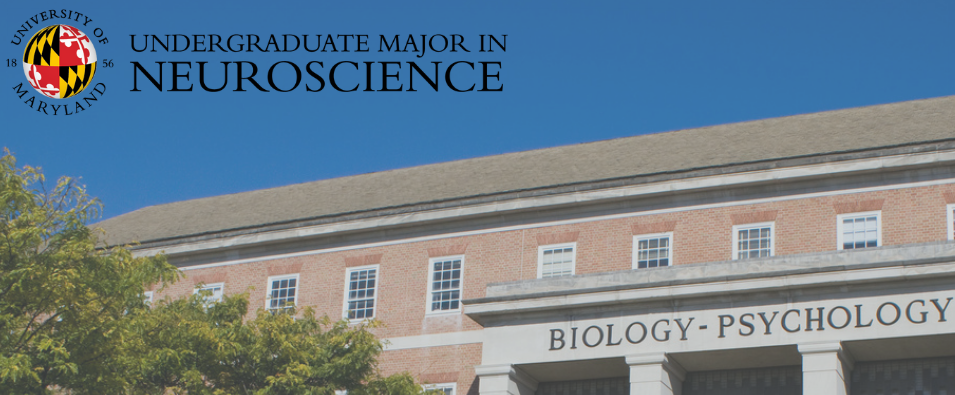In honor of Black History Month, we sat down with one of UMD’s newest faculty members, Dr. Nikolas Francis, Assistant Professor in the Department of Biology and the Brain and Behavior Institute, and soon-to-be director of NEUR 398H:Neuroscience Honors Seminar. We spoke with him about how he got interested in neuroscience and research, his love for music, and how his family shaped him into the researcher he is today.
Dr. Nikolas Francis (courtesy of Francis, Nikolas | Neuroscience at UMD l University of Maryland)
How did your interest in neuroscience begin?
My interest in neuroscience began with a curiosity about how we hear. As an undergrad at the University of Iowa, there wasn’t yet a neuroscience major available to me, so I decided to double major in Psychology and Speech and Hearing Science. During my sophomore year I took a class called, ‘Brain and Behavior’. It covered the neural mechanisms behind sensation and perception, which I found fascinating and eventually led me to join Dr. Amy Poremba’s lab, where I got free rein to build behavioral equipment and learn about metabolic brain imaging. That hands-on experience, paired with the on-going course material, really jump-started my career in neuroscience.
What was your Ph.D. research about?
I received my Ph.D. from the MIT/Harvard Medical School program in Speech and Hearing Bioscience and Technology. For my thesis I worked with Dr. John Guinan Jr. to study how the human cochlea changes its responses to sound when we are listening. I studied the auditory system using otoacoustic emissions (OAEs), which are tiny sounds generated in the cochlea and recorded in the ear canal.
Dr. Francis grew up around music. His Jamaican father introduced him to reggae music by artists such as Bob Marley and Desmond Dekker, which taught Dr. Francis about the importance of self-determination and social justice. Classically trained in the Suzuki Method as a child, Dr. Francis learned to play piano, violin, trumpet, trombone, saxophone, computer music, and drums. Today, to express himself to the fullest extent, he focuses on free musical improvisation. Dr. Francis’ interests converged in college, where he learned about the relationship between acoustics and auditory processing in the brain, which provided him with a better understanding of how sounds become music in our minds.
What came first: the love for music or the love for sound?
Probably the love for music. As a young piano student, I had a bag where I kept all of my music books, and I decorated it with musical notes to look like a rollercoaster. My piano teacher made me play it one day, and I realized I liked this thing that I made–and loved how it sounded.
Dr. Francis’ upbringing and family helped shape him into the researcher he is today. Growing up in Wisconsin as a child of immigrants, Dr. Francis’ family celebrated their Jamaican and El Salvadorian cultures to help him build a strong sense of identity that he kept close, even as he often found himself to be the only Black and/or Hispanic student in the classroom.
To whom do you look for inspiration and empowerment?
I would have to say, my mom and my uncle. My mom has been through so much. She is an immigrant from El Salvador who moved to Wisconsin where she became an education administrator and teacher. Seeing her work through her career struggles while raising a family at the same time continues to be an inspiration for me. My uncle was the first Black scientist (chemist) that I knew of. Seeing and talking to him about what he does made it clear to me that I could do that too–that it was a job I could have .
Another scientist who inspires Dr. Francis in his own field is zoologist and behaviorist, Dr. Charles Henry Turner (1867-1923). Dr. Turner, born just after the Civil War, was a pioneer in the study of insect behavior. His undergraduate thesis was published in Science, and he went on to be the first Black scientist to earn a Ph.D. in zoology from the University of Chicago. His career was focused on conditioning behavior and learning in insects, about which he made important discoveries that shape our understanding of behavioral neuroscience today. Dr. Francis admires Dr. Turner’s pursuit of his scientific passions despite the many obstacles created by racism.
What advice do you have for underrepresented students who want to go into research?
It is important to first think about what you are interested in studying, and then do whatever you can to get into a lab where someone is studying that topic. Spend as much time as you can in the lab. Learn to apply your passion toward solving a problem in the world. You will run into people, perhaps with implicit biases, that will get in the way of your personal progress, so you have to learn how to step around those biases and keep on your path. That is a challenge that every minority scientist has to figure out how to deal with in order to move forward in their career.
Dr. Nikolas Francis is currently a Principal Investigator at the University of Maryland in the Francis Lab, where he studies the neural basis of listening and its relationship with behavior, in order to clarify the mechanisms behind auditory perception. He can be followed on Twitter here. He recommends books by Sci-fi author, Octavia Butler, and music by Jazz musician, Ornette Coleman.
Dr. Francis looks forward to working with motivated Neuroscience students at UMD. He will be teaching the NEUR Honors Seminar course starting fall 2022. Be on the lookout for further information about his courses!
This post was written by Neuroscience Ambassadors Elena Tozzi (‘22) and Rakshita Balaji (‘23). Follow the Neuroscience Blog, and learn more about the UMD Neuroscience Program.

